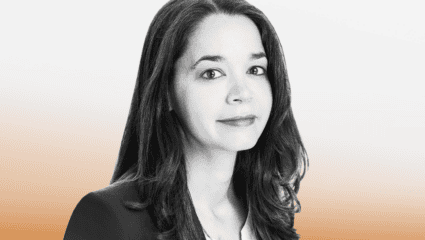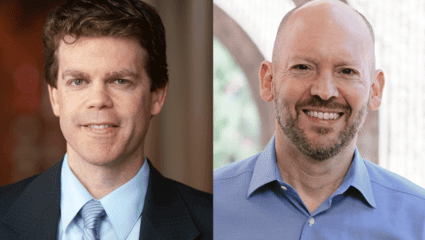TDE Middle Market: Pro-ESG Doesn't Mean Anti-Profits

Investors don’t need to sacrifice returns to invest in environmental, social and governance, or ESG, funds, according to a panel of ESG investors speaking at The Deal Economy: Middle Market Week on Wednesday, July 29.
The investor community, including limited partners, active and passive fund managers and retail shareholders, is now realizing that ESG efforts are a way for companies to become more competitive in the long run, according to Lauren Taylor Wolfe, managing partner at Impactive Capital, an ESG-focused activist fund.
“The reason ESG is taking off is because people are realizing that it’s simply part of the ingredients that companies are going to need to pay attention to drive the strongest financial return in the long run and to create durable sustainable business models,” Wolfe said.
Wolfe’s Impactive Capital, which has a concentrated portfolio of 10 companies, engages leadership on long-term ESG goals by linking them to a business case and quantifying the profit associated with them.
ESG funds drew $20.6 billion in investments in 2019, four times the net flows in 2018, according to Morningstar Inc. The funds also outperformed conventional funds, a separate Morningstar report in April noted.
Some activist hedge funds have expanded their own offerings into environmentally and socially focused investing. Jeff Ubben’s ValueAct Capital Partners LP, for example, is setting up Inclusive Capital Partners LP, which will focus exclusively on socially responsible investing.
Meanwhile, some of the biggest passive funds such as Vanguard Group Inc., BlackRock Inc. (BLK), and State Street Corp. (STT), all have ESG funds. BlackRock’s Larry Fink also launched a big push for climate risk disclosures this year.
Daniel Hanson, chief investment officer at Ivy Investment Management Co., said his firm looks at ESG through a broader lens of environmental impact, efficiency, production capacity, employee engagement and retention, diversity and inclusive culture as well as accountability.
Actively managed ESG funds are also more likely to have a better understanding of individual companies which puts them in a better position to influence management, said Ali Dibadj, partner at AllianceBernstein LP. Passive funds, on the other hand, can drive change at a macro level by pushing companies to have diverse boards, reduce emissions or meet other ESG goals.
Active and passive funds can have a symbiotic relationship, Dibadj said. If an active fund, based on its research, proposes changes a company should make to meet ESG goals, large passive funds can use their influence to drive those changes, he said.
Despite the bullishness from the panel on ESG-related issues, the profitability of ESG investing is particularly under a spotlight right now. The Department of Labor recently unveiled a draft rule that would make it harder for employers to offer 401(k) plans that heavily invest in ESG funds.
The DOL’s proposal, issued in June under the oversight of U.S. Labor Secretary Eugene Scalia, would require retirement plan providers to choose investments “based solely on financial considerations.”
The definition of ESG also remains nebulous for many investors.
“The problem with ESG is that it doesn’t really have a universally accepted definition,” said Pamela Marcogliese, a corporate and M&A partner at Freshfields Bruckhaus Deringer LLP. “What people think falls under the umbrella of ESG really differs quite drastically from investor to investor and company to company.”
ESG is going to become a more important part of investing in the next five to ten years, the panel said.
The world that we live in includes a culture of inclusion and diversity, and differing viewpoints that are only beneficial to companies, said Matthew Vaughn, senior vice president and general counsel at Par Pacific Holdings Inc. (PARR).
Coupled with continuing carbon issues that need to be dealt with across the world, “ESG is always going to be a part of the calculus of the investment making community,” Vaughn said.
—Ron Orol contributed to this article
Editor’s note: The original version of this article was published earlier on The Deal’s premium subscription website. For access, log in to TheDeal.com or use the form below to request a free trial.



